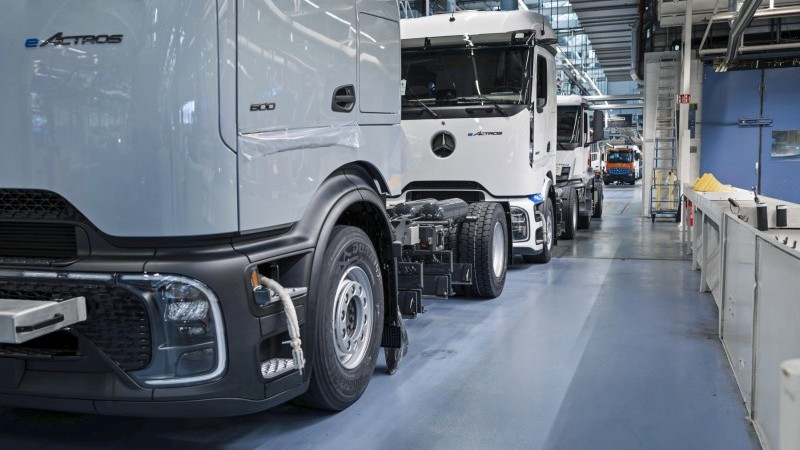Accelerating Shift to Electric Trucks in Europe's Road Transport Industry
Key Ideas
- European truck manufacturers are ramping up the production of electric trucks to meet ambitious CO2 reduction targets set by the EU, with a significant shift expected in the market composition over the next decade.
- Despite the higher upfront costs, prices of electric trucks are starting to decrease due to factors like battery price reductions, increased competition, and scaled production, making them more accessible to buyers.
- Nordic countries lead in the transition to electric trucks, while Germany, the UK, and France have the highest number of e-truck deliveries, with the Netherlands gearing up for zero-emission city zones by 2025.
- Manufacturers are under pressure to accelerate the delivery of zero-emission trucks to meet regulatory requirements, with fines looming for non-compliance, signaling a stirring influence in the industry between 2025 and 2030.
The adoption of electric trucks in the European road transport industry is accelerating, driven by stringent CO2 reduction targets set by the European Union. Truck manufacturers are facing pressure to decarbonize quickly, with targets of 15% by 2025 and 30% by 2030 compared to the 2019-20 baseline. In early 2024, the EU raised the target to a 45% reduction by 2030, leading to a shift in the market towards electric trucks. Manufacturers like DAF, Daimler, Scania, and MAN are ramping up series production of electric trucks with extended ranges in anticipation of higher demand. The sales of electric trucks are increasing, with delivery centers in Germany, the UK, and France, while the Nordics lead in market shares. The push for electric trucks is driven by CO2 reporting standards and the upcoming zero-emission zones in city centers. Although electric trucks are still more expensive than diesel trucks, prices are gradually decreasing due to factors like battery price reductions and increased competition. Manufacturers are under pressure to meet CO2 reduction targets, with penalties for non-compliance, which is expected to drive a significant acceleration in the delivery of zero-emission trucks between 2025 and 2030.
Topics
Automotive / Trucking
Market Analysis
Electric Trucks
European Union
Fleet Management
CO2 Reduction
Manufacturers
Road Transport
Price Trends
Latest News
